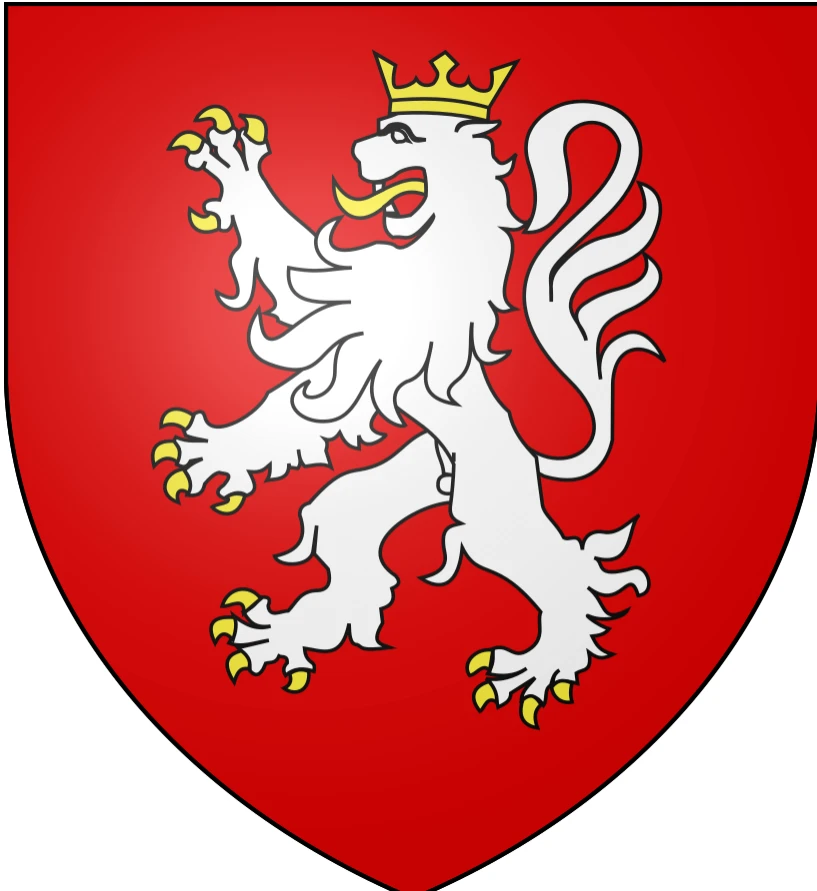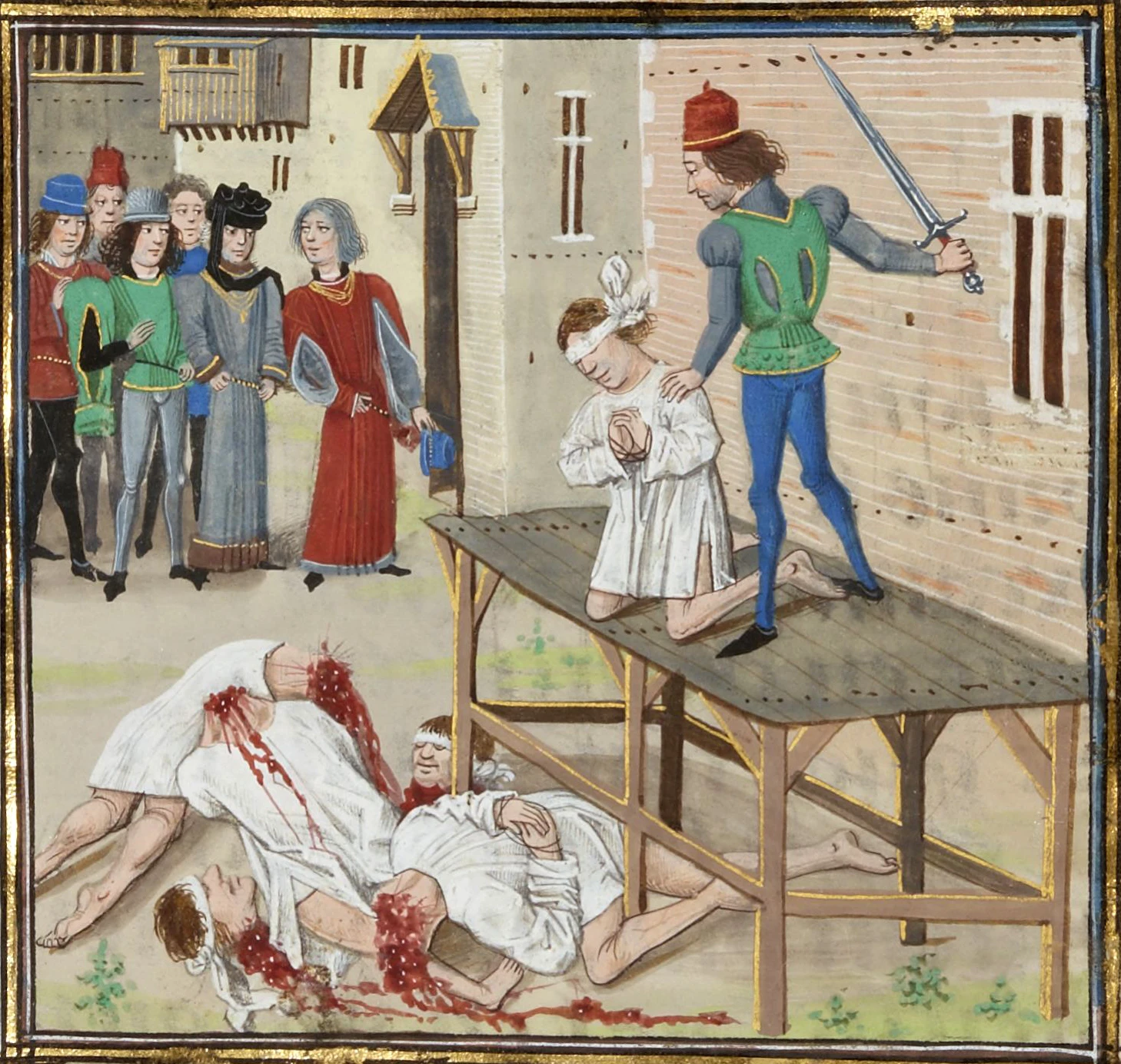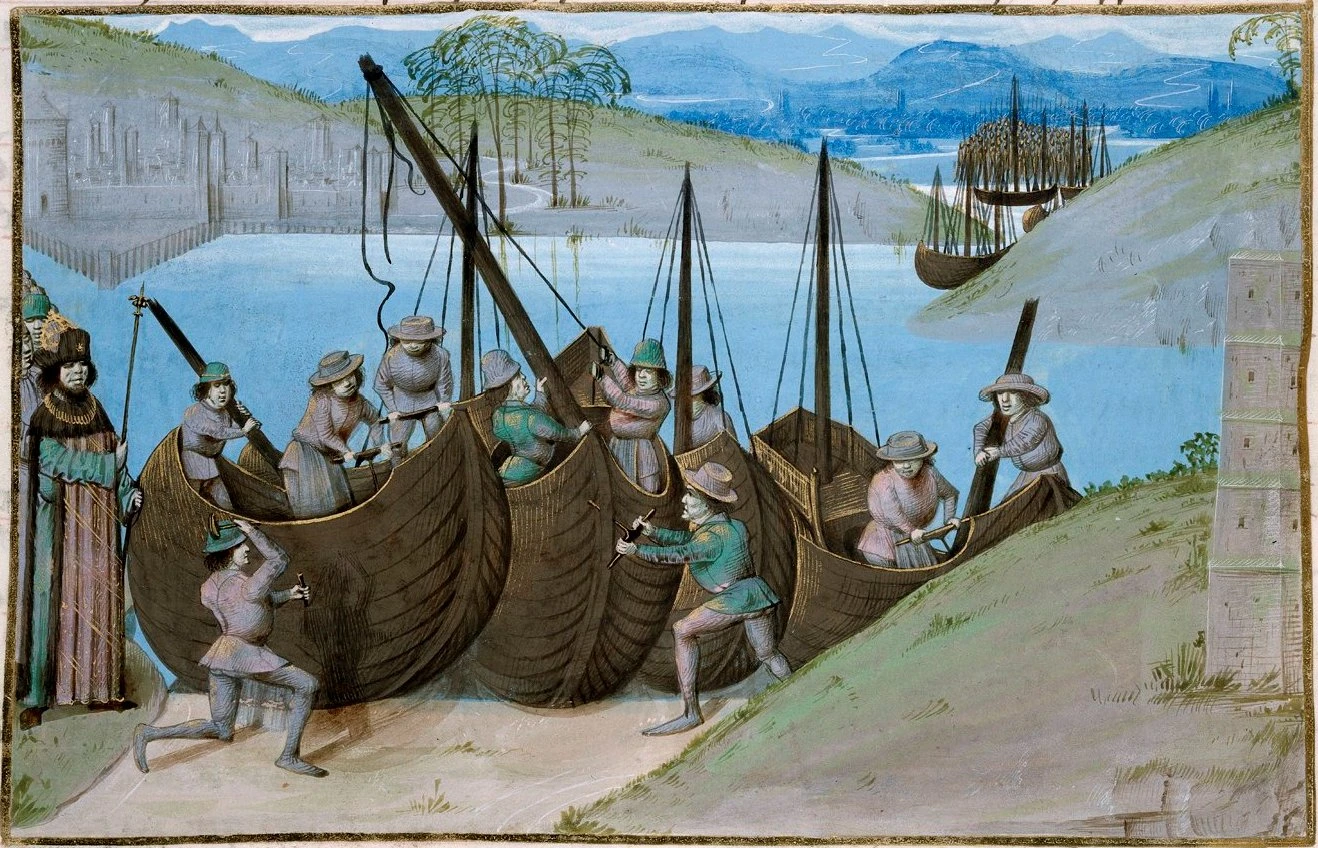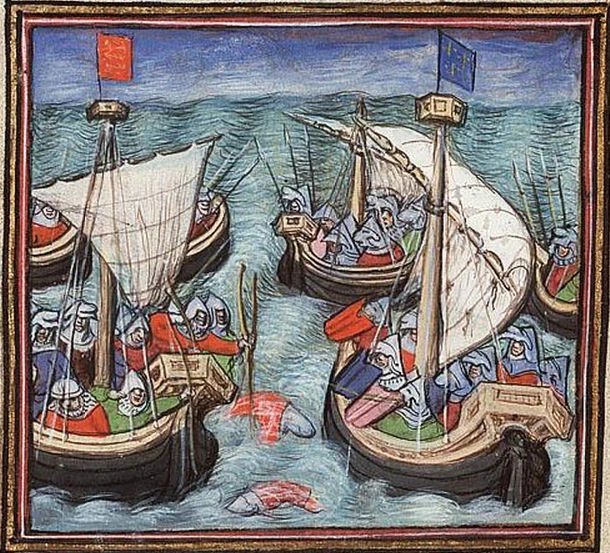The Destiny of an Heiress
3 marriages in less than 30 years
Born into a noble family in Poitou, Jeanne was a wealthy heiressnot least upon the death of her father. Married at the age of 12 to Geoffroy de Châteaubriant for 14 years, she then remarried briefly before this union was annulled on grounds of consanguinity. Her 3rd husband was to be the man of her life;
The Union with Olivier de Clisson
The de Clisson family coat of arms / Illustration chosen by monsieurdefrance.com: Jimmy44 via wikipedia.
In 1330, Jeanne married Olivier IV de Clisson (1300-1343), a highly influential Breton lord. Their marriage was exceptional for the time: they truly loved each other, above and beyond the usual political alliances. Together, they managed their lands, took part in political affairs and had several children, including Olivier V, future Constable of France.
When wars come
The Hundred Years' War and the War of the Breton Succession
The start of the Hundred Years' War (1337) plunged France into a complex conflict. It was a war of inheritance between Philip VI of Valois, King of France for the French, and Edward III of England, who also claimed the crown of France. Olivier initially supported the French king, Philip VI, for strategic and political reasons. For money too. When the War of Succession of Brittany broke out in 1341, he chose the side of Charles de Blois, supported by the French crown, against Jean de Montfort, allied with England. But his attitude is a little shady;
The death of Olivier IV de Clisson in 1343 / Illustration chosen by monsieurdefrance.com By Liédet, Loyset (c.1420-1479) - BNF RC-B-01633 FRANCAIS 2643, Chroniques. - Bruges Folio 126, Domaine public, https://commons.wikimedia.org/w/index.php?curid=11252834
The Accusation of Treason
Despite his apparent commitment to the King of France, Olivier is accused of treason. Rumors circulate about his behavior at the siege of Vannes and a suspicious ransom paid for his release by the English. This was in fact true. A letter from Edward III, discovered many years later, proves that Olivier de Clisson had indeed changed sides. In any case, Philip VI, convinced of his guilt, set a trap for Olivier, inviting him to a tournament in Paris. As there is a truce between the English and the French, Olivier de Clisson goes to the tournament in Paris;
The Trigger for Jeanne de Belleville's pirate destiny: Olivier's execution
In August 1343, Olivier was arrested, summarily tried and executed for treason. His head is exhibited in Paris, then in several towns, before being fixed on a spike in Nantes. Jeanne, witness to this macabre spectacle, vows to avenge her husband. The confiscation of his property and his banishment from the kingdom only fuels her anger.
Jeanne de Belleville's revenge: a personal war against the King of France;
The construction of a ship in the Middle Ages / By Attribution: Master of the London Wavrin - Jean Wavrin, Anciennes et nouvelles chroniques d'Angleterre, volume 1; British Library Royal MS 15 E IV, fol. 57vhttp://www.bl.uk/catalogues/illuminatedmanuscripts/ILLUMIN.ASP?Size=mid&IllID=39341, Domaine public, https://commons.wikimedia.org/w/index.php?curid=17972592
With her remaining fortune, Jeanne raises an army and attacks castles loyal to the King of France. Her campaigns were marked by unprecedented cruelty: men, women, children and animals were massacred. These acts of reprisal, aimed not at conquering land but at inflicting losses, terrorize Philip VI's loyal followers. Banned from France, Jeanne takes to the sea to continue her revenge. She armed two ships and attacked French vessels in the English Channel. For nine months, she destroyed warships and merchant convoys, mercilessly slaughtering their crews. Her cruelty, amplified by legends, earned her
The End of an Epic
A naval battle between the French and English during the 100 Years' War. lllustration chosen by monsieurdefrance.com: By wikipedia Public domain, https://commons.wikimedia.org/w/index.php?curid=15127040
Retirement in England
Exhausted by this life of vengeance, Jeanne finds refuge in England, where she enjoys the protection of Edward III, enemy of the King of France. There she raised her son, Olivier V. She remarried an English knight, Sir Walter Bentley, and spent her last years far from the fighting. Her husband was given some land in Brittany as a reward for his bravery and loyalty to Edward III;
Jeanne de Belleville has become a legend.
The memory of Jeanne de Belleville has spanned the centuries thanks to her daring exploits. From noble lady to feared pirate, she left her mark on history through her actions, etching her name in memory as a legendary figure of vengeance and bravery. She remains a symbol of defiance in the face of injustice and resistance in an age dominated by men. Her life has inspired historical and legendary tales that celebrate her courage and determination.







